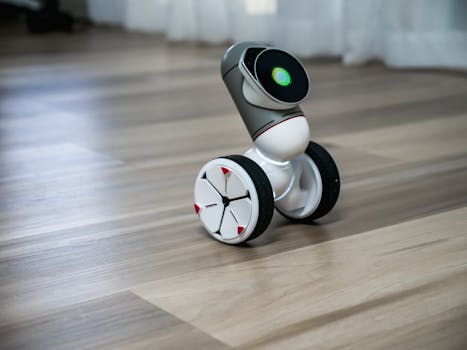
Smart Homes 2025: The Rise of AI-Driven Devices
Smart Homes 2025: The Rise of AI-Driven Devices is an exciting topic that has been gaining attention in recent years. With the increasing demand for smart home devices, the market is expected to grow exponentially in the next few years. In this article, we will explore the concept of smart homes, the role of AI-driven devices, and what we can expect from smart homes in 2025.
Introduction to Smart Homes
A smart home is a residence that has been equipped with advanced technology to make it more comfortable, convenient, and energy-efficient. Smart homes often include devices such as thermostats, lighting systems, security cameras, and entertainment systems that can be controlled remotely using a smartphone or voice assistant. The main goal of a smart home is to provide a seamless and intuitive experience for its occupants, while also reducing energy consumption and improving safety.
The Role of AI-Driven Devices in Smart Homes
AI-driven devices are revolutionizing the smart home industry by providing advanced automation and personalization capabilities. These devices use machine learning algorithms to learn the habits and preferences of the occupants and adjust the home’s settings accordingly. For example, an AI-powered thermostat can learn the occupants’ schedule and adjust the temperature to optimize energy consumption. AI-driven devices can also detect anomalies in the home’s systems and alert the occupants to potential issues, such as a leaky faucet or a security breach.
What to Expect from Smart Homes in 2025
In 2025, we can expect smart homes to become even more sophisticated and integrated. Some of the key trends that are expected to shape the smart home industry in the next few years include:
- Increased use of voice assistants and smart speakers to control smart home devices
- Greater emphasis on energy efficiency and sustainability, with the use of renewable energy sources and energy-harvesting devices
- More advanced security features, such as biometric authentication and AI-powered surveillance systems
- Greater integration with wearables and other personal devices, such as fitness trackers and smartwatches
- More emphasis on health and wellness, with the use of air and water quality sensors and other health-monitoring devices
In conclusion, Smart Homes 2025: The Rise of AI-Driven Devices is an exciting and rapidly evolving field that is expected to transform the way we live and interact with our homes. With the increasing demand for smart home devices and the advancement of AI technology, we can expect smart homes to become even more sophisticated and integrated in the next few years.






